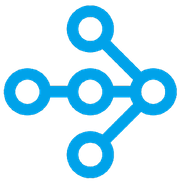xgboost_pandas_tune_breast_cancer
build dataframe from breast cancer dataset
Data ProcessingData Science
Providers:
Modules:
Run this DAG
1. Install the Astronomer CLI:Skip if you already have the CLI
2. Initate the project in a local directory:
3. Copy and paste the code below into a file in the
dagsdirectory.
4. Add the following to your
requirements.txtfile:
5. Run the DAG from the local directory where the project was initiated:
import osimport jsonfrom airflow.decorators import dag, taskfrom airflow.utils.dates import days_agofrom airflow.operators.dummy_operator import DummyOperatorimport rayfrom ray_provider.decorators.ray_decorators import ray_taskimport numpy as npimport xgboost_ray as xgbrimport xgboost as xgbfrom ray import tunefrom ray.tune.schedulers import ASHASchedulerfrom xgboost_ray.tune import TuneReportCheckpointCallbackfrom datetime import datetime# These args will get passed on to each operator# You can override them on a per-task basis during operator initializationdefault_args = {"owner": "airflow",}task_args = {"ray_conn_id": "ray_cluster_connection"}# Change to True to load simple sklearn datasetSIMPLE = False# Change actors and cpus per actor here as per resources allowXGB_RAY_PARAMS = xgbr.RayParams(max_actor_restarts=1, num_actors=1, cpus_per_actor=1)ROOT_DIR = "."LOCAL_DIR = f"{ROOT_DIR}/ray_results"@dag(default_args=default_args,schedule_interval=None,start_date=datetime(2021, 1, 1, 0, 0, 0),tags=["xgboost-pandas-tune"],)def xgboost_pandas_tune_breast_cancer():@ray_task(**task_args)def load_dataframe() -> "ray.ObjectRef":"""build dataframe from breast cancer dataset"""print("Loading CSV")if SIMPLE:print("Loading simple from sklearn.datasets")from sklearn import datasetsdata = datasets.load_breast_cancer(return_X_y=True)else:import pandas as pdurl = ("https://archive.ics.uci.edu/ml/machine-learning-databases/""00280/HIGGS.csv.gz")colnames = ["label"] + ["feature-%02d" % i for i in range(1, 29)]data = pd.read_csv(url, compression="gzip", names=colnames)print("loaded higgs")print("Loaded CSV.")return data@ray_task(**task_args)def split_train_test(data):print("Splitting Data to Train and Test Sets")print(f"Creating data matrix: {data, SIMPLE}")if SIMPLE:from sklearn.model_selection import train_test_splitprint("Splitting data")data, labels = datatrain_x, test_x, train_y, test_y = train_test_split(data, labels, test_size=0.25)train_set = xgbr.RayDMatrix(train_x, train_y)test_set = xgbr.RayDMatrix(test_x, test_y)else:df_train = data[(data["feature-01"] < 0.4)]colnames = ["label"] + ["feature-%02d" % i for i in range(1, 29)]train_set = xgbr.RayDMatrix(df_train, label="label", columns=colnames)df_validation = data[(data["feature-01"] >= 0.4) & (data["feature-01"] < 0.8)]test_set = xgbr.RayDMatrix(df_validation, label="label")print("finished data matrix")return train_set, test_set# This could be in a library of trainablesdef train_model(config, checkpoint_dir=None, data_dir=None, data=()):dtrain, dvalidation = dataevallist = [(dvalidation, "eval")]# evals_result = {}config = {"tree_method": "hist","eval_metric": ["logloss", "error"],}print("Start training with TuneReportCheckpointCallback")bst = xgbr.train(params=config,dtrain=dtrain,ray_params=XGB_RAY_PARAMS,num_boost_round=100,evals=evallist,callbacks=[TuneReportCheckpointCallback(filename=f"model.xgb")],)@ray_task(**task_args)def tune_model(data):search_space = {# You can mix constants with search space objects."objective": "binary:logistic","eval_metric": ["logloss", "error"],"max_depth": tune.randint(1, 9),"min_child_weight": tune.choice([1, 2, 3]),"subsample": tune.uniform(0.5, 1.0),"eta": tune.loguniform(1e-4, 1e-1),}print("enabling aggressive early stopping of bad trials")# This will enable aggressive early stopping of bad trials.scheduler = ASHAScheduler(max_t=4, grace_period=1, reduction_factor=2 # 4 training iterations)print("Tuning")analysis = tune.run(tune.with_parameters(train_model, data=data),metric="eval-logloss",mode="min",local_dir=LOCAL_DIR,# You can add "gpu": 0.1 to allocate GPUsresources_per_trial=XGB_RAY_PARAMS.get_tune_resources(),config=search_space,num_samples=4,scheduler=scheduler,)print("Done Tuning")return analysis@ray_task(**task_args)def load_best_model_checkpoint(analysis):print("Checking Analysis")best_bst = xgb.Booster()print(f"Analysis Best Result on eval-error is: {analysis.best_result['eval-error']}")print("Loading Model with Best Params")best_bst.load_model(os.path.join(analysis.best_checkpoint, "model.xgb"))accuracy = 1.0 - analysis.best_result["eval-error"]print(f"Best model parameters: {analysis.best_config}")print(f"Best model total accuracy: {accuracy:.4f}")# We could now do further predictions with# best_bst.predict(...)return best_bstbuild_raw_df = load_dataframe()data = split_train_test(build_raw_df)analysis = tune_model(data)best_checkpoint = load_best_model_checkpoint(analysis)kickoff_dag = DummyOperator(task_id="kickoff_dag")complete_dag = DummyOperator(task_id="complete_dag")kickoff_dag >> build_raw_dfbest_checkpoint >> complete_dagxgboost_pandas_tune_breast_cancer = xgboost_pandas_tune_breast_cancer()
 Ray
Ray DummyOperator
DummyOperator